There are several crazy things that happen with a JS DATE object that convert strings, for example consider the following date you provided
Note: The following examples may or may not be ONE DAY OFF depending on YOUR timezone and current time.
new Date("2011-09-24"); // Year-Month-Day
// => Fri Sep 23 2011 17:00:00 GMT-0700 (MST) - ONE DAY OFF.
However, if we rearrange the string format to Month-Day-Year...
new Date("09-24-2011");
// => Sat Sep 24 2011 00:00:00 GMT-0700 (MST) - CORRECT DATE.
Another strange one
new Date("2011-09-24");
// => Fri Sep 23 2011 17:00:00 GMT-0700 (MST) - ONE DAY OFF AS BEFORE.
new Date("2011/09/24"); // change from "-" to "/".
// => Sat Sep 24 2011 00:00:00 GMT-0700 (MST) - CORRECT DATE.
We could easily change hyphens in your date "2011-09-24" when making a new date
new Date("2011-09-24".replace(/-/g, '\/')); // => "2011/09/24".
// => Sat Sep 24 2011 00:00:00 GMT-0700 (MST) - CORRECT DATE.
What if we had a date string like "2011-09-24T00:00:00"
new Date("2011-09-24T00:00:00");
// => Fri Sep 23 2011 17:00:00 GMT-0700 (MST) - ONE DAY OFF.
Now change hyphen to forward slash as before; what happens?
new Date("2011/09/24T00:00:00");
// => Invalid Date.
I typically have to manage the date format 2011-09-24T00:00:00 so this is what I do.
new Date("2011-09-24T00:00:00".replace(/-/g, '\/').replace(/T.+/, ''));
// => Sat Sep 24 2011 00:00:00 GMT-0700 (MST) - CORRECT DATE.
UPDATE
If you provide separate arguments to the Date constructor you can get other useful outputs as described below
Note: arguments can be of type Number or String. I'll show examples with mixed values.
Get the first month and day of a given year
new Date(2011, 0); // Normal behavior as months in this case are zero based.
// => Sat Jan 01 2011 00:00:00 GMT-0700 (MST)
Get the last month and day of a year
new Date((2011 + 1), 0, 0); // The second zero roles back one day into the previous month's last day.
// => Sat Dec 31 2011 00:00:00 GMT-0700 (MST)
Example of Number, String arguments. Note the month is March because zero based months again.
new Date(2011, "02");
// => Tue Mar 01 2011 00:00:00 GMT-0700 (MST)
If we do the same thing but with a day of zero, we get something different.
new Date(2011, "02", 0); // Again the zero roles back from March to the last day of February.
// => Mon Feb 28 2011 00:00:00 GMT-0700 (MST)
Adding a day of zero to any year and month argument will get the last day of the previous month. If you continue with negative numbers you can continue rolling back another day
new Date(2011, "02", -1);
// => Sun Feb 27 2011 00:00:00 GMT-0700 (MST)

